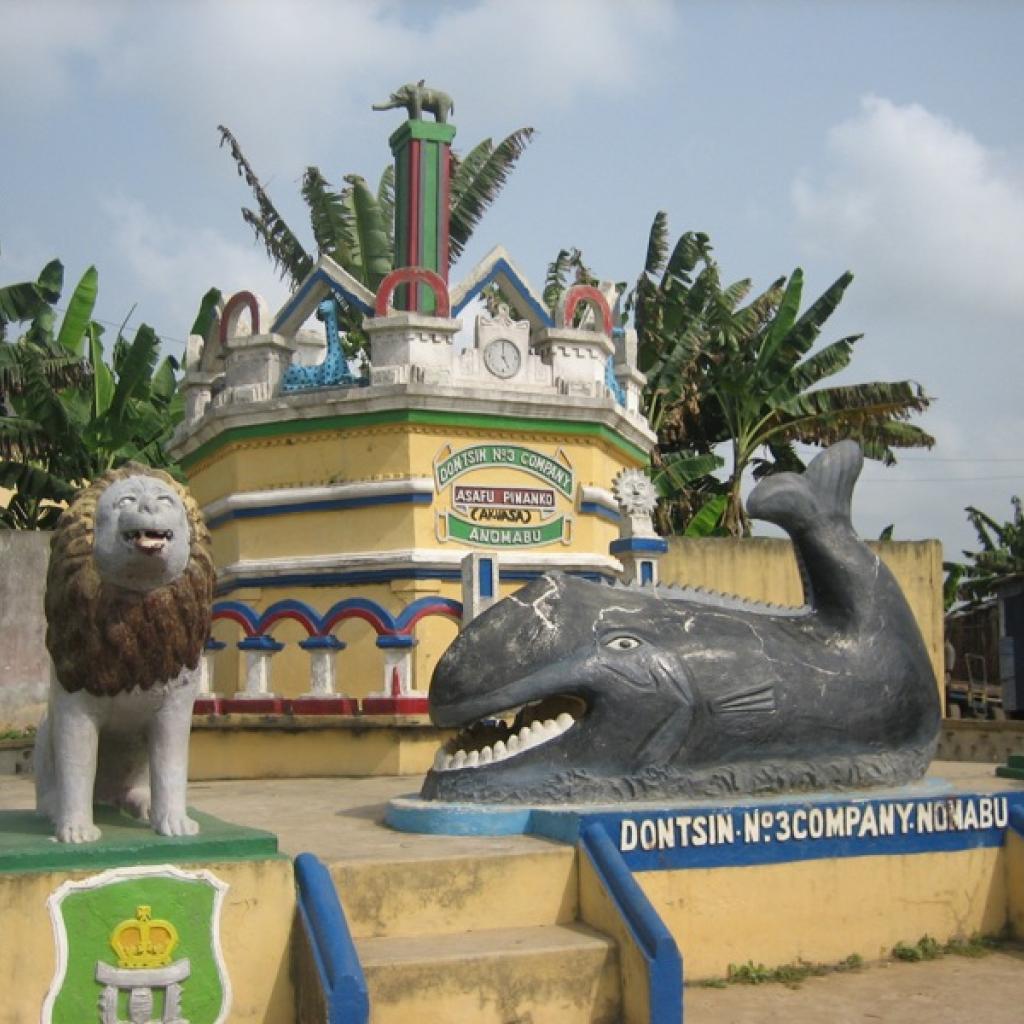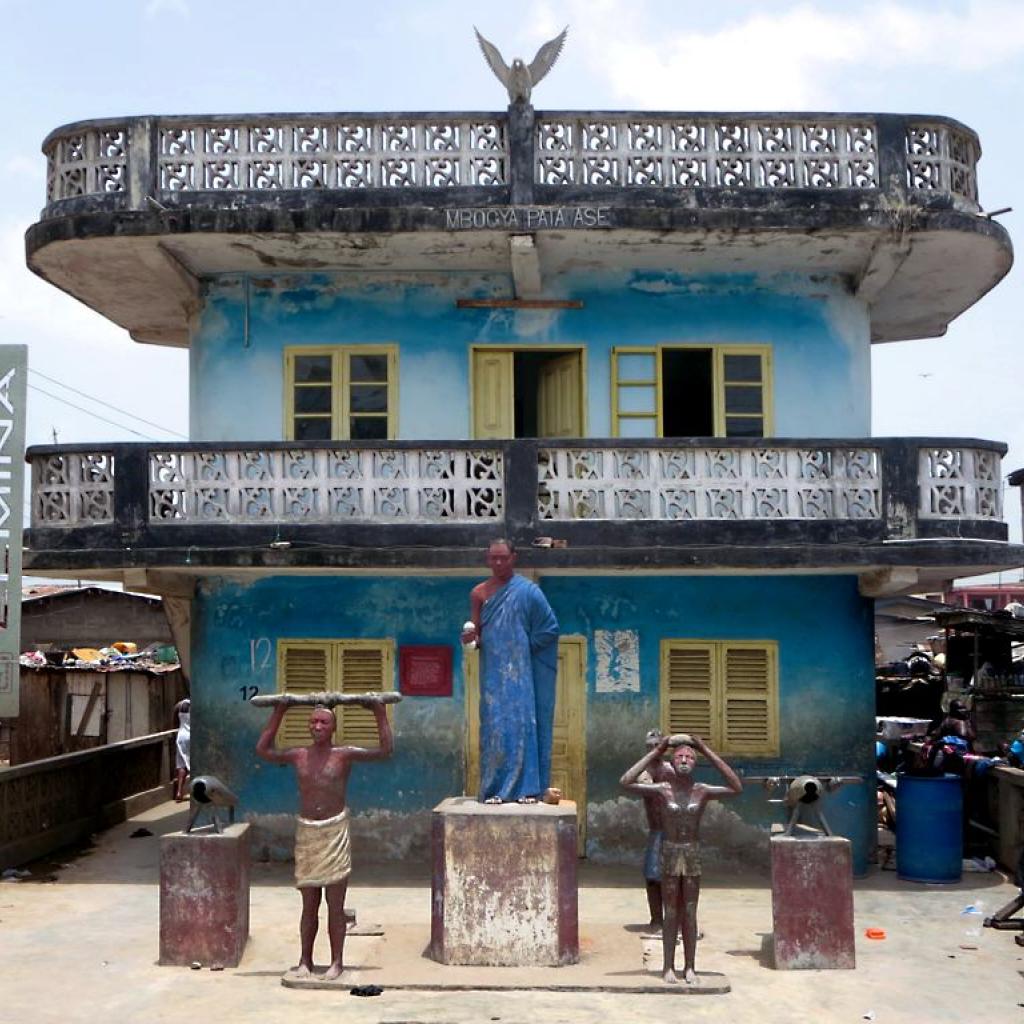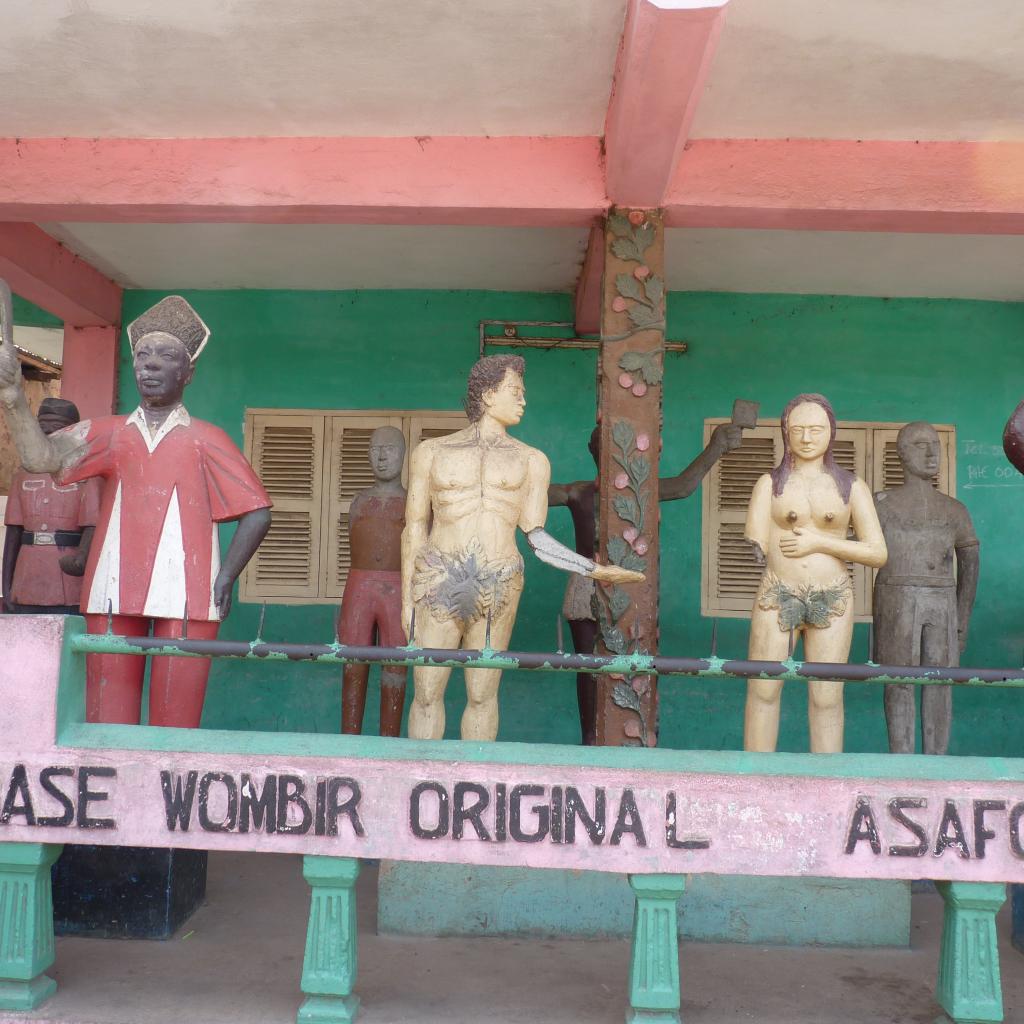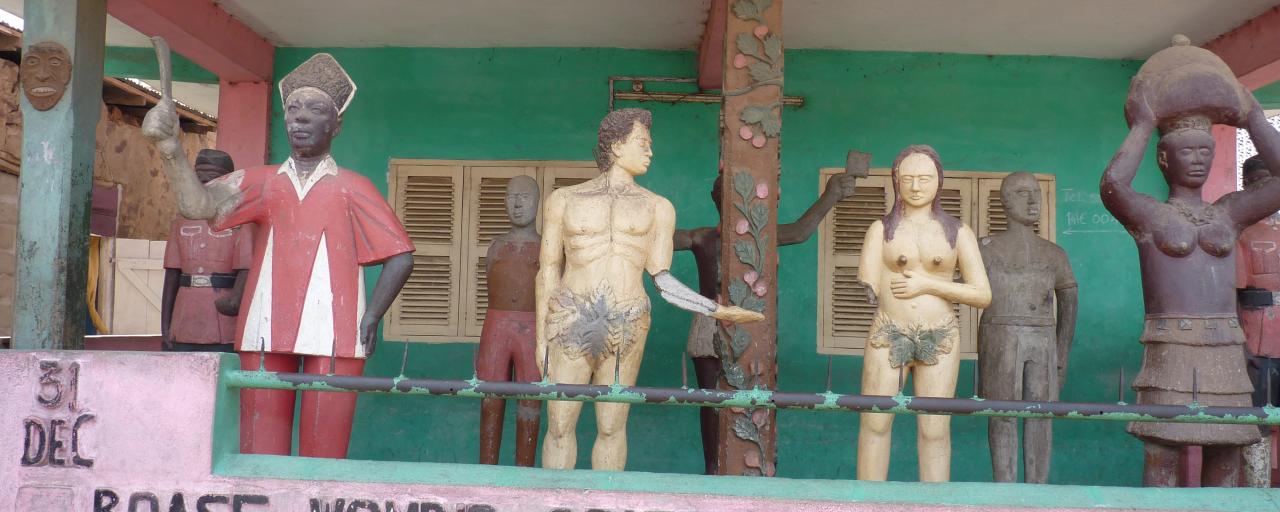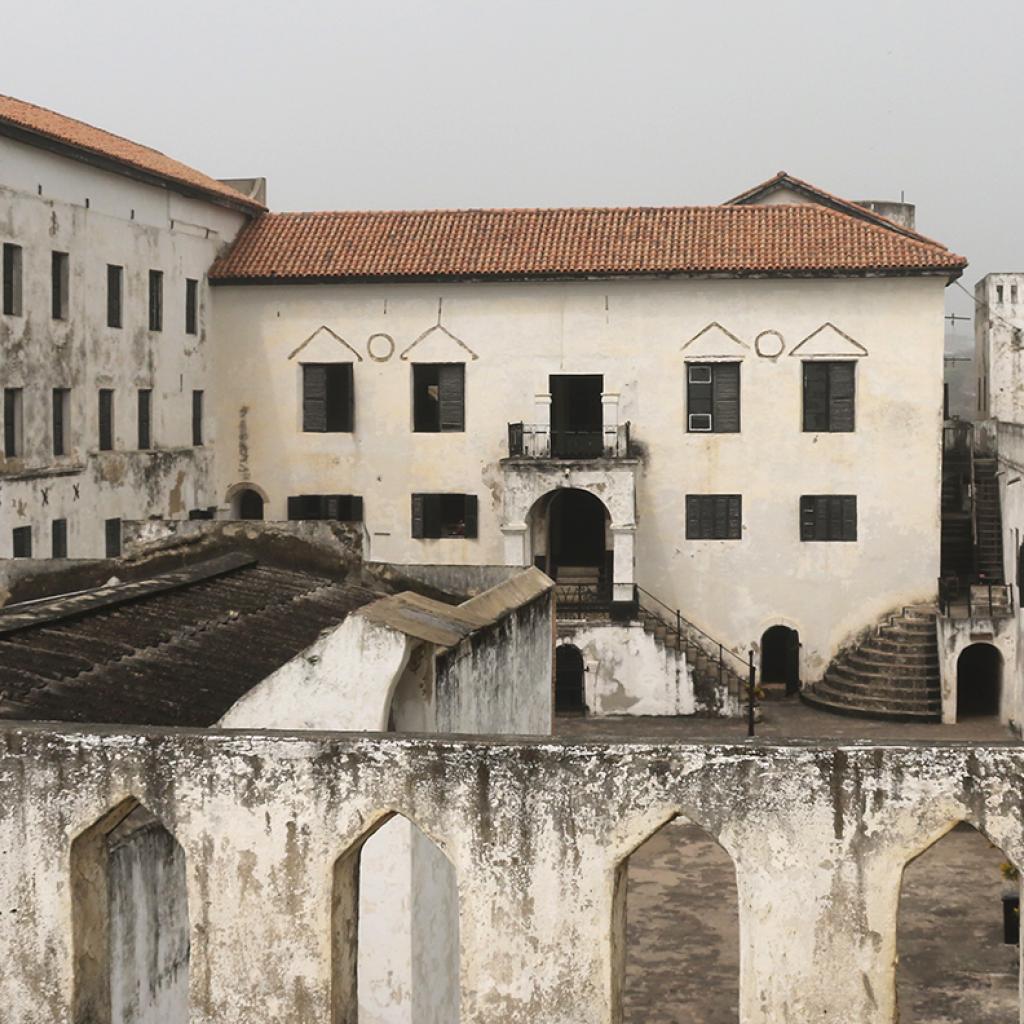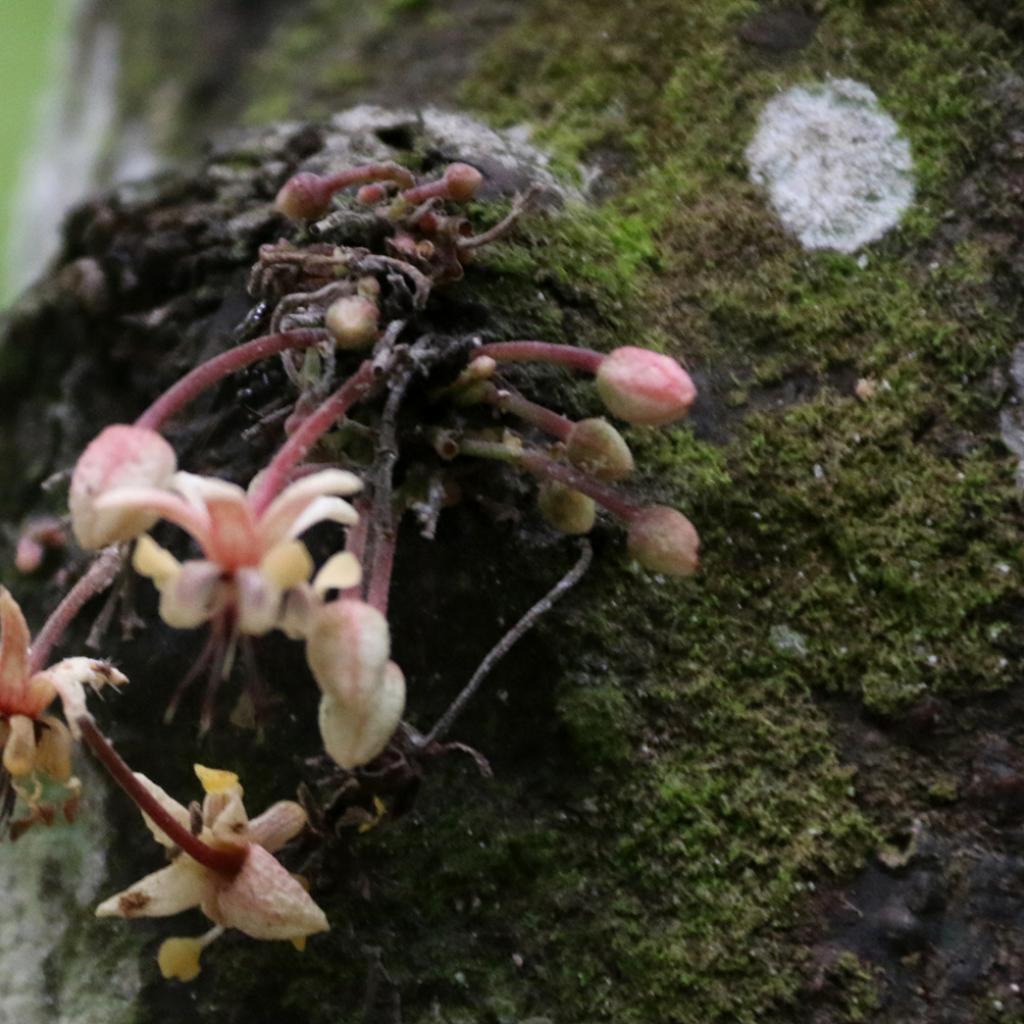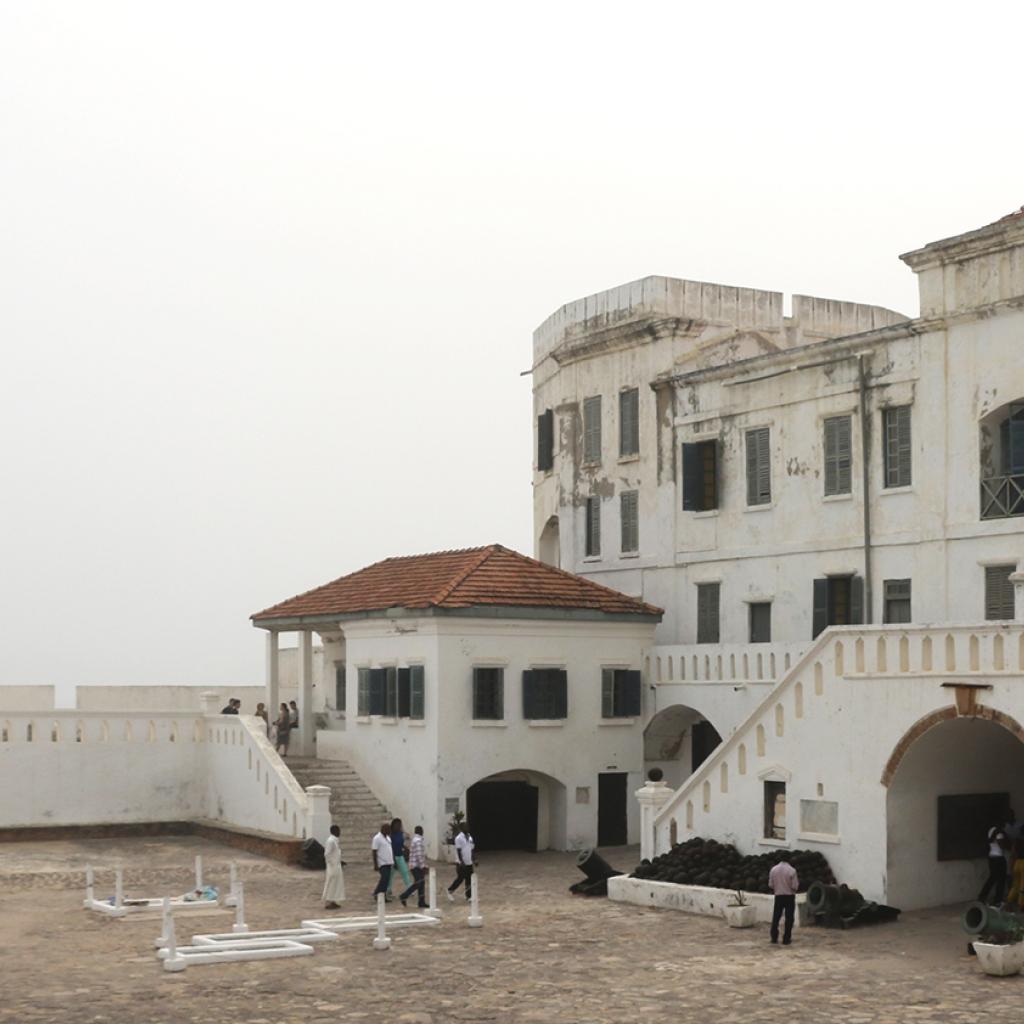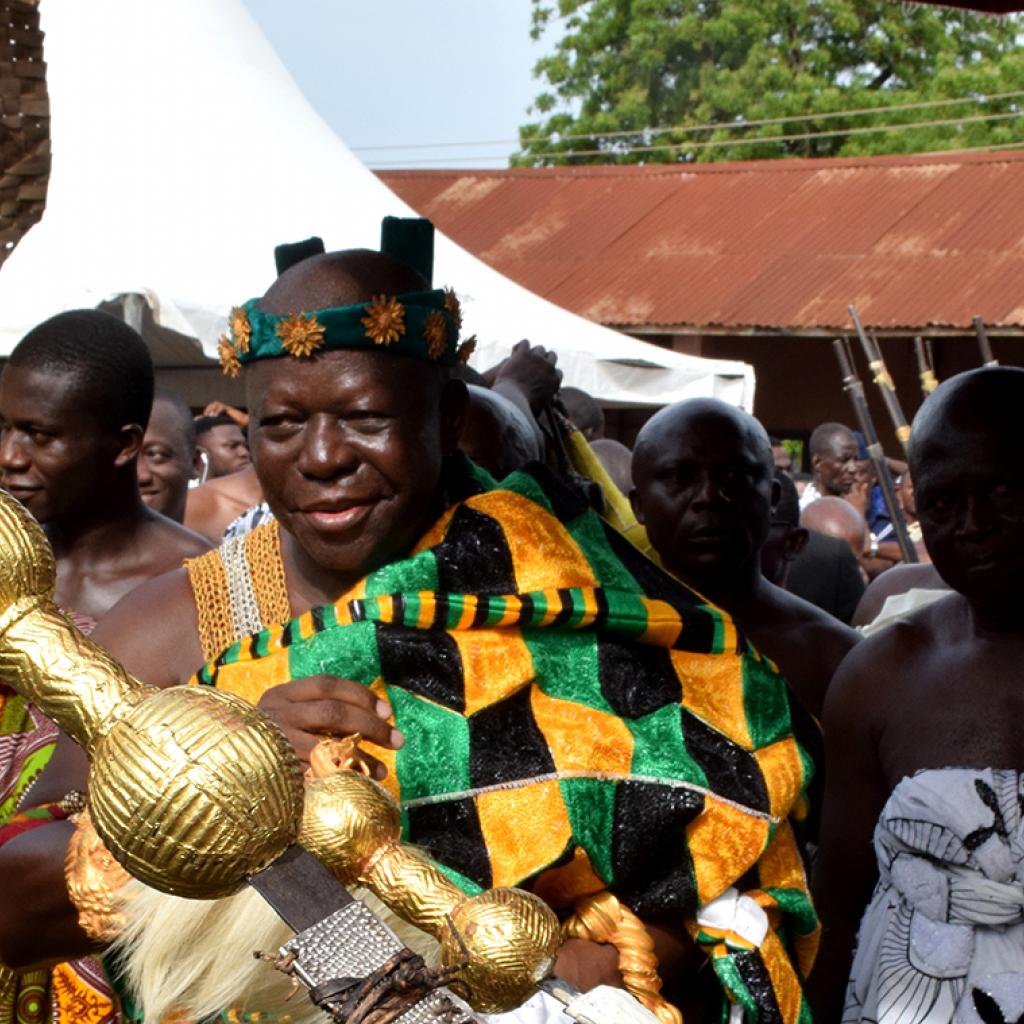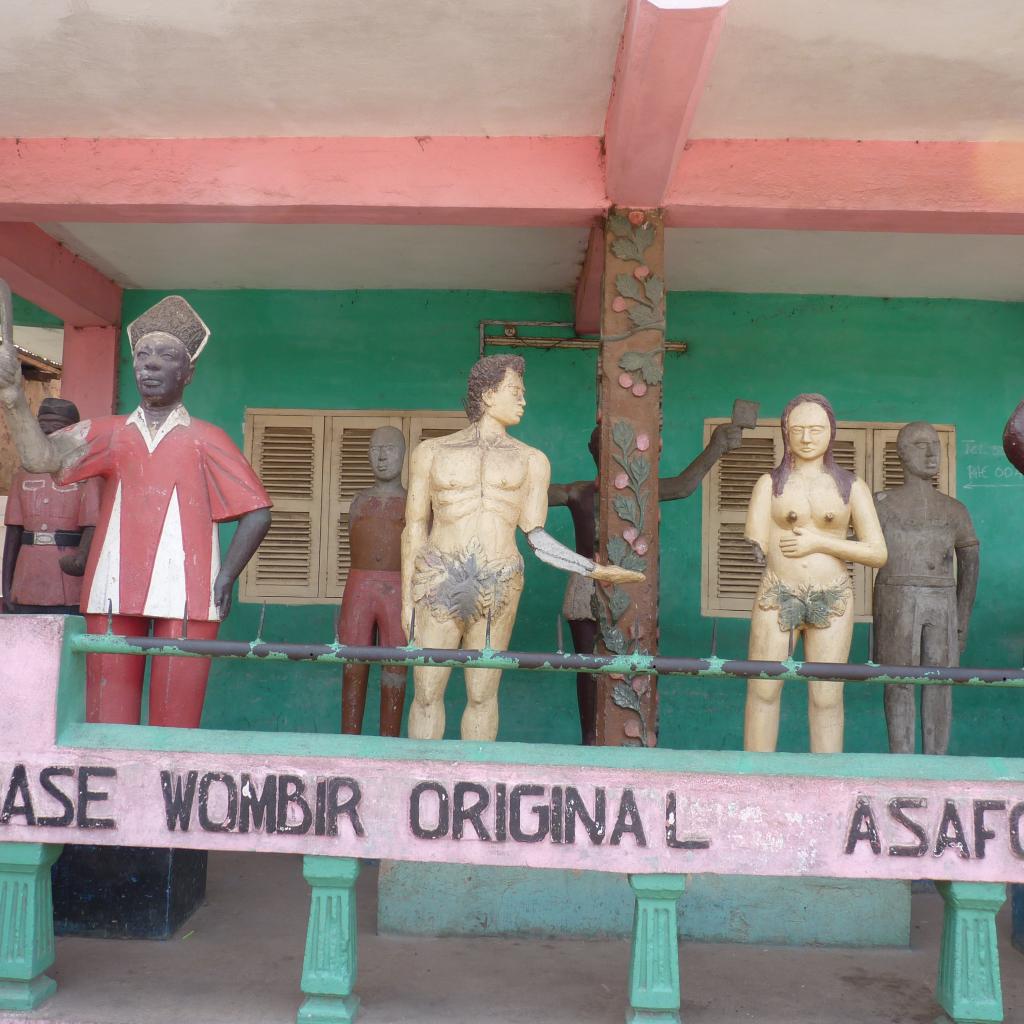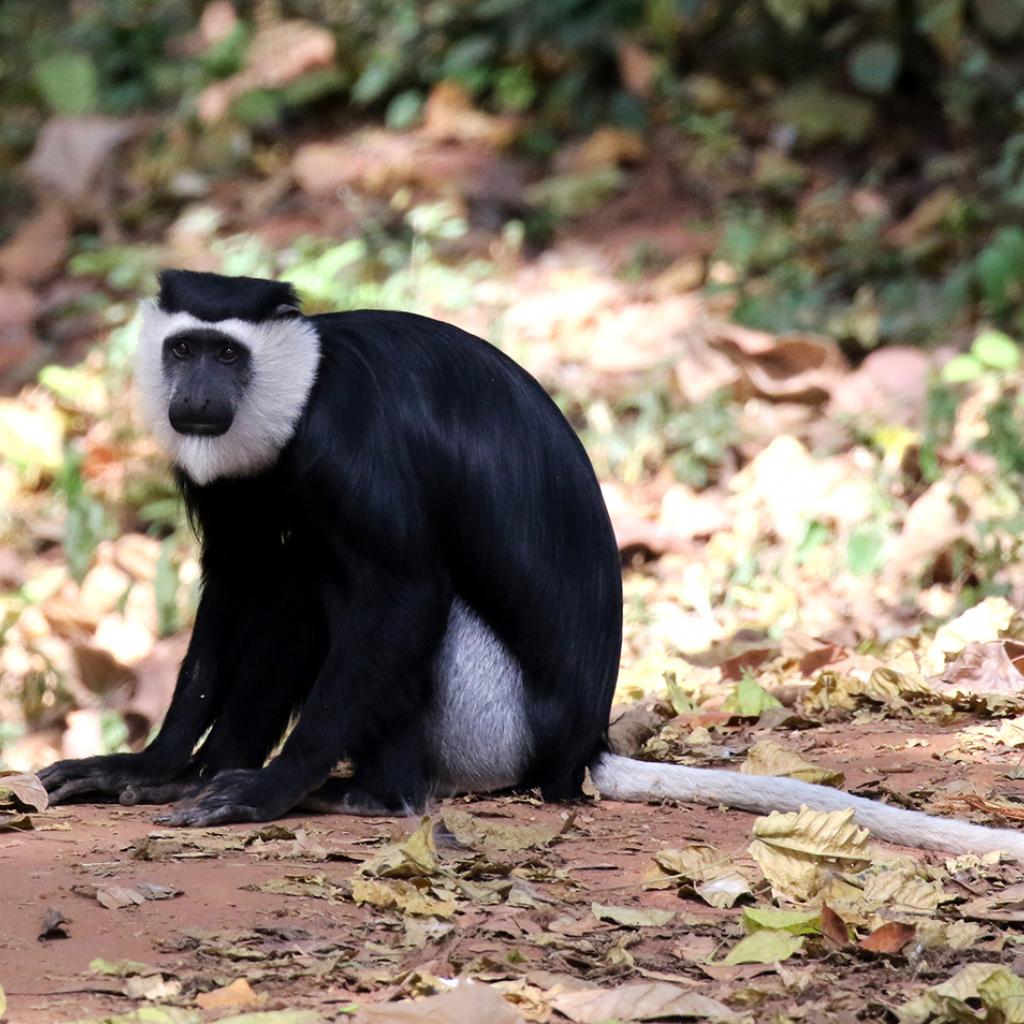The Posuban sanctuaries are a unique feature of the central coastal region of Ghana; it is easy to find them in the oldest trading cities like Elmina, Mankessim and Anomabu.
At first glance they may look like modern concrete sculptures only, but for people living in these communities, they mean a lot more.
These sanctuaries were made by the Asafo companies as their local headquarters and as warehouses for weapons and for signs.
The Asafo companies were traditional militias of the Akan cities; they had the task of defending cities and providing security services to the community, they also played an important role in local politics.
The word Asafo derives from the word in Akan 'sa' that means "war" and from the word "fo" meaning "warriors"; so Afaso means "warriors of war".
While the word Posuban is a combination of the Akan word "posu" that means "place" and the word "ban" that means "fortification"; therefore "posuban" means "fortified place".
Every statue and every carving, practiced on the columns and on the walls, has a particular meaning; often these signs have a religious value or represent dominance over enemies.
The sanctuaries were often built to indicate the importance of each Asafo company, the more important the company was and the more the sanctuaries were elaborated.
The Posuban vary in size and wealth of sculptures, that can represent both white men and black men, but also animals, ships and other objects of European derivation such as clocks.
The figures of the sanctuaries are represented in full size and have a symbolic value even if at times it is difficult to interpret their meaning and symbolism; for example, in Elminathere is a Posuban where are represented Adam and Eve, who are two characters of the Christian and Jewish religion, who have no direct reference to the war.
Now the Posuban are only ceremonial places and constitute the religious center of an Asafo company.
The Asafo warriors belonging to the Fante, a group belonging to the Akan population who lived in the coastal region, inevitably came into contact with the European colonial powers present in the Gold Coast; as a result of this they developed a more complex social and political organization, based on martial principles, they began to realize elaborate traditions of visual art on banners and flags, where figurative scenes typical of the Posubans were represented.
The Fante group succeeded, during the colonial period, to keep their kingdom intact, despite the various European powers that have alternated on the coast of Ghana, they succeeded in this intent playing a role as intermediaries between the populations of the interior and the settlers.
In the past, the Asafo companies were responsible for the protection of a clan or a village, but over time they lost their military value and nowadays they are more important for their ceremonial role and for the weight they exert in art. in politics, rather than going to war.
The membership to an Asafo company, even today, is a tradition that is handed down from generation to generation in a patriarchal line among the Akan.
Photogallery
